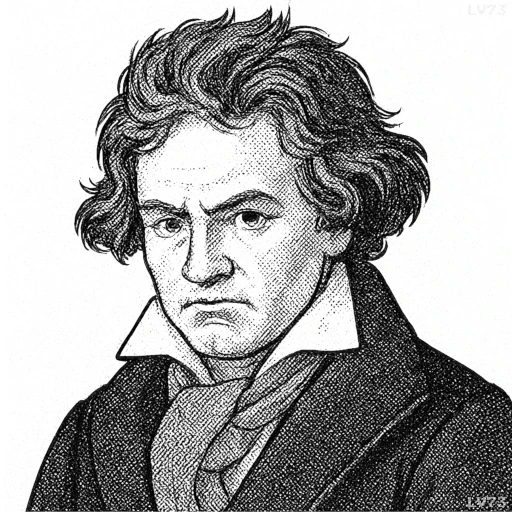“What you are, you are by accident of birth; what I am, I am by myself. There are and will be a thousand princes; there is only one Beethoven.”

- December 16, 1770 – March 26, 1827
- Born in Germany (Holy Roman Empire)
- Composer, pianist
table of contents
Quote
“What you are, you are by accident of birth; what I am, I am by myself. There are and will be a thousand princes; there is only one Beethoven.”
Explanation
In this powerful statement, Beethoven draws a clear distinction between the circumstantial nature of birth and the self-made nature of genius. By saying “what you are, you are by accident of birth,” he highlights the role that fortune or inheritance can play in one’s status or position in life—such as being born into royalty or privilege. In contrast, Beethoven emphasizes that his identity, his genius, and his artistry are the result of his own efforts, struggles, and self-determination. The phrase “I am by myself” reinforces the idea that his greatness was not handed to him; it was earned through his passion, dedication, and resilience.
This quote speaks to Beethoven’s sense of pride in his achievements and his belief in the individual’s power to shape their own destiny, regardless of external circumstances. He contrasts the abundance of “princes”—a reference to royalty or nobility—with the rarity of a true artist, someone whose worth is determined not by birthright, but by their ability to create something unique. In his mind, his identity as an artist is unparalleled and cannot be replicated simply by virtue of social standing or inheritance. Beethoven’s words reflect his belief that genius is defined not by external titles but by innate talent, relentless drive, and personal sacrifice.
In the modern context, this quote is a celebration of the idea that true individual greatness is not defined by one’s social or economic status but by the unique contributions they make to the world. Today, this idea resonates with anyone who has worked tirelessly to overcome limitations or obstacles to achieve personal excellence. Whether in the arts, sciences, or any other field, Beethoven’s words remind us that self-made success, driven by passion and perseverance, is a force that can transcend any circumstance or position into something truly extraordinary.
Would you like to share your impressions or related stories about this quote in the comments section?



